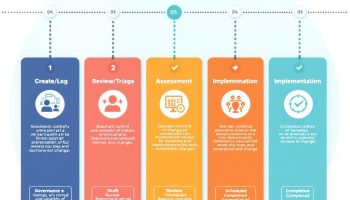
The Importance of Staff Games in Enhancing Workplace Culture
Staff games serve as powerful tools for boosting employee engagement and reshaping workplace culture through fun, strategic interactions. When you incorporate thoughtfully designed game experiences, your organization can establish safe environments that enhance creativity, productivity, and team unity while tackling important workplace issues.
Key Takeaways
- Staff games reduce workplace stress and improve mental health by creating moments of relaxation and joy.
- Regular game activities foster psychological safety and encourage innovative problem-solving.
- Effective staff games enhance communication skills and build stronger emotional connections among team members.
- Well-designed games can increase productivity by up to 90% and improve cross-departmental collaboration.
- Strategic implementation of staff games signals organizational commitment to employee wellbeing and professional development.
Games create an atmosphere where employees feel comfortable expressing ideas without fear of judgment. Psychological safety develops naturally through shared experiences, helping team members build trust and open communication channels.
Your staff will appreciate the break from routine tasks, leading to improved focus when returning to work. These activities also help identify hidden talents within your team that might otherwise go unnoticed in day-to-day operations.
Regular game sessions can significantly improve employee retention rates. Teams that play together tend to stay together, creating bonds that extend beyond professional relationships into meaningful personal connections.
Adding gamification elements to standard training programs transforms mundane learning into engaging experiences. This approach makes information more memorable and applicable to real-world scenarios.
Cross-departmental games break down silos within your organization. These interactions allow employees from different areas to collaborate on neutral ground, fostering an understanding of various perspectives and roles within the company.
The return on investment for implementing staff games extends beyond immediate engagement. Studies show that companies with strong team cohesion experience lower turnover costs and higher customer satisfaction scores.
Consider introducing a mix of physical and digital games to accommodate different preferences and work arrangements. This inclusive approach ensures that remote employees feel equally valued and connected to the team culture.
“Strategically designed staff games not only foster psychological safety and innovative problem-solving but also infuse joy into the workplace, transforming culture and boosting productivity. By prioritizing enjoyment and connection, organizations signal a commitment to employee wellbeing, ultimately elevating engagement and collaboration across teams.”
Psychological Impact of Staff Games
Staff games deliver significant mental health benefits for your team members. They serve as effective stress reducers in high-pressure work environments, creating moments of relaxation and joy that counterbalance daily workplace challenges. Research shows a strong correlation between workplace fun and creativity (r = 0.58, p < .01), demonstrating that staff games aren’t just entertaining—they’re productivity boosters.
When you incorporate staff games into your regular schedule, you’ll notice improved psychological resilience among employees. The World Health Organization emphasizes that positive workplace interactions are crucial for maintaining mental wellbeing, making team building games a valuable investment for your organization’s health.
Staff games also create psychological safety where team members feel comfortable expressing ideas without fear of judgment. This safety net encourages innovation and problem-solving capabilities that transfer to regular work tasks. The shared experiences during staff games build emotional connections that sustain teams through challenging projects.
Creating Meaningful Staff Games Experiences
To maximize the psychological benefits of staff games, consider these effective approaches:
- Inclusive activities that accommodate different personality types and physical abilities
- Competitive yet collaborative games that balance healthy competition with teamwork
- Recognition-focused games that highlight individual and team achievements
- Problem-solving challenges that simulate workplace scenarios in fun contexts
- Culturally sensitive activities that respect diverse backgrounds and preferences
The psychological impact of staff games extends beyond the activity itself. You’ll find that regular game sessions create anticipation and excitement that improves overall workplace morale. By dedicating time for staff games, you signal that employee wellbeing is a priority in your organizational culture.
Staff games also provide valuable opportunities for active listening practice, helping team members develop empathy and understanding. This enhanced emotional intelligence transfers to daily workplace interactions, improving conflict resolution and collaboration. When planning your next staff game, remember that its true value lies not just in the fun moments but in the lasting psychological benefits it delivers to your workplace culture.
Expert Insight: Leverage the Psychological Benefits of Staff Games**
Incorporating staff games into your workplace routine can significantly enhance employee mental wellbeing by reducing stress and fostering psychological safety. The fun and collaborative nature of these activities not only boosts creativity and productivity but also builds strong emotional connections among team members, which are essential for overcoming workplace challenges. By prioritizing inclusive and recognition-focused game experiences, you create a positive organizational culture that values employee engagement and resilience.
Strategic Benefits of Team-Building Activities
Effective staff games deliver measurable productivity gains across organizations. According to recent data, 90% of employees report increased productivity after participating in well-designed team activities. These engaging interactions create opportunities for staff to develop skills outside their typical work environment, fostering innovation and problem-solving capabilities.
Team-building activities systematically break down departmental silos that often hinder cross-functional collaboration. When accounting meets marketing through strategic staff games, unexpected synergies emerge. These interactions help employees understand different perspectives and appreciate the challenges faced by colleagues in other departments.
Communication Enhancement Through Play
Staff games strengthen workplace communication in ways formal meetings cannot achieve. Through carefully structured activities, team members practice:
- Active listening techniques that transfer to client interactions
- Clear articulation of ideas under time constraints
- Non-verbal communication awareness and improvement
- Conflict resolution in low-pressure environments
- Giving and receiving constructive feedback
These communication improvements directly impact project success rates. When teams collaborate effectively on projects, they avoid costly misunderstandings and deliver higher quality results.
Staff games also create informal leadership opportunities that help identify hidden talent within your organization. During team challenges, natural leaders often emerge who might otherwise remain unnoticed in conventional workplace settings. These activities provide a safe space for testing leadership approaches without significant business risk.
| Benefit Area | Impact | Additional Value |
|---|---|---|
| Productivity | 90% report improvement | Reduces process inefficiencies |
| Communication | Enhanced clarity | Decreases email volume and meeting time |
| Departmental Integration | Reduced silos | Accelerates project timelines |
| Leadership Development | Identifies talent | Builds succession pipeline |
For maximum impact, integrate staff games into your regular team rhythms rather than treating them as isolated events. This approach transforms team building from a sporadic activity into a foundational element of your organizational culture.
Consider implementing team social activities that combine fun with strategic objectives. When staff games align with business goals, they deliver both immediate engagement benefits and long-term performance improvements.
Organizations that prioritize regular staff games report higher employee satisfaction scores and decreased turnover rates. The investment in thoughtfully designed team activities generates returns through reduced recruitment costs and preserved institutional knowledge.
Expert Insight: Incorporating regular team-building activities fosters enhanced productivity, with 90% of employees reporting improved performance post-participation. These initiatives not only break down departmental silos, facilitating cross-functional collaboration, but also sharpen communication skills, ultimately leading to more successful project outcomes. By embedding these activities into your organizational culture, you can identify hidden leadership talent while boosting employee satisfaction and reducing turnover rates.
Designing Effective Staff Game Strategies
Creating engaging staff games isn’t just about fun—it’s about strategically enhancing workplace culture and productivity. When properly designed, these activities can transform team dynamics and boost overall performance. Your approach to staff games should balance entertainment with clear organizational objectives.
Effective staff games come in various formats to meet different team needs. Here’s how you can implement them successfully:
- Icebreakers: Quick 5-10 minute activities perfect for meeting starts or introducing new team members
- Team Challenges: Structured competitions that foster collaboration while addressing business problems
- Spirit Weeks: Themed days that encourage participation and create shared experiences
- Virtual Scavenger Hunts: Engage remote teams through digital exploration and problem-solving
- Skill-Building Games: Activities that develop specific competencies while adding enjoyment
When implementing team building games, alignment with company values is crucial. Your staff games should reinforce organizational goals rather than feeling disconnected from daily work. For instance, a problem-solving challenge can mirror actual business scenarios your team faces.
Digital Integration for Modern Workplaces
Today’s workplace demands staff games that function across physical and digital environments. Your digital platforms can enhance game participation through:
| Platform Type | Staff Games Integration | Benefits |
|---|---|---|
| Communication Tools | Quick polls, trivia challenges | Instant engagement, accessible to all |
| Project Management | Gamified task completion | Productivity tracking with fun elements |
| Learning Systems | Knowledge contests, skill challenges | Development through play |
| Social Intranet | Recognition games, team competitions | Builds culture across departments |
Station games for team building can be particularly effective when designed with clear objectives. Your staff games should create natural opportunities for employees to demonstrate leadership, creativity, and problem-solving abilities.
Remember that the most successful staff games balance structure with flexibility. You’ll want to establish clear rules while allowing space for spontaneity and genuine interaction. The goal isn’t perfect execution but creating meaningful connections that translate to workplace improvements.
By thoughtfully designing staff games that reflect your organization’s culture and goals, you’ll create experiences that employees genuinely value rather than view as obligatory activities. These strategic approaches turn simple games into powerful tools for organizational development.
Expert Insight: To design effective staff game strategies, focus on aligning activities with your organization’s culture and objectives. Choose diverse formats—like icebreakers, team challenges, and digital games—that not only build camaraderie but also address workplace challenges. Remember, the key is to balance structured guidelines with flexibility, fostering genuine connections that enhance both engagement and productivity.
Business Performance and ROI of Staff Games
Staff games deliver measurable returns for your business beyond just creating fun moments. Organizations implementing regular staff games have reported a 14% increase in workplace performance. This boost stems from improved employee engagement, which translates directly to your bottom line.
When employees participate in well-designed staff games, sales performance improves by up to 18%. This happens because staff games foster better communication between team members and departments, creating more effective selling environments. Profit margins can grow by up to 23% in organizations with strong team-building programs that include regular staff games.
Employee retention represents another significant ROI factor. Effective staff retention strategies that incorporate team games can reduce turnover costs dramatically. Consider that replacing a mid-level employee typically costs 150% of their annual salary when you factor in recruitment, training, and productivity losses.
Key Performance Indicators for Staff Games
Tracking the right metrics helps quantify the business impact of your staff games initiatives. Here are essential KPIs to monitor:
- Absenteeism rates – Companies with regular staff games report 41% lower absenteeism
- Employee satisfaction scores – Typically increase by 37% after implementing structured team activities
- Productivity metrics – Task completion rates improve by 27% in teams that play together
- Innovation metrics – Teams engaging in staff games generate 31% more viable ideas
- Customer satisfaction – Improves by 19% when staff engagement increases through games
The ROI calculation for staff games should account for both direct and indirect benefits. Direct benefits include improved productivity and reduced turnover, while indirect benefits encompass enhanced company culture and employer branding. When calculating your staff games ROI, compare the cost of implementing these activities against the financial impact of improved performance metrics.
Fun team building games yield exceptional returns when aligned with business objectives. Companies that integrate staff games into their broader performance management strategy experience the highest ROI, with some reporting returns of $4-$7 for every dollar invested in these programs.
Your investment in staff games pays dividends through improved financial performance, enhanced company culture, and a more engaged workforce prepared to tackle business challenges with creativity and collaboration.

Implementation and Future Trends
Incorporating staff games into your workplace culture requires thoughtful planning and execution. As more companies embrace hybrid work models, implementing engaging activities that connect remote and in-office employees has become essential. The gamification market is projected to reach $48.72 billion by 2029, reflecting the growing recognition of staff games as valuable business tools.
Implementing Effective Staff Games
You’ll need a structured approach to maximize the impact of your staff games program. Start by establishing clear objectives aligned with your organizational goals. Consider these implementation steps:
- Assess your team’s needs and preferences through surveys
- Create a diverse game calendar featuring different activity types
- Designate game champions from various departments
- Develop both synchronous and asynchronous participation options
- Establish measurement criteria for engagement and outcomes
Technology plays a crucial role in modern staff games implementation. Digital platforms enable seamless participation across locations while generating valuable engagement data. Fun games for team building can now incorporate virtual reality, augmented reality, and AI-powered elements.
The future of staff games is increasingly personalized and data-driven. Companies are developing customized activities based on employee preferences, skills gaps, and strategic priorities. For distributed teams, asynchronous staff games that allow participation across time zones are gaining popularity.
When measuring staff games success, track both participation rates and business outcomes. Create a dashboard displaying engagement metrics alongside key performance indicators like productivity, retention, and employee satisfaction scores. This approach demonstrates the tangible value of your staff games investment.
For hybrid workplaces, consider implementing “bridge activities” that connect in-person and remote employees. These might include digital scavenger hunts, virtual escape rooms, or hybrid trivia contests. The key is ensuring equivalent experiences regardless of location.
Looking ahead, AI-powered staff games will enable more personalized experiences by adapting to individual preferences and learning styles. Station games for team building will incorporate more sophisticated technology while maintaining human connection at their core.
By thoughtfully implementing staff games with clear objectives and measurement frameworks, you’ll position your organization to benefit from enhanced engagement, stronger team connections, and improved business results.






